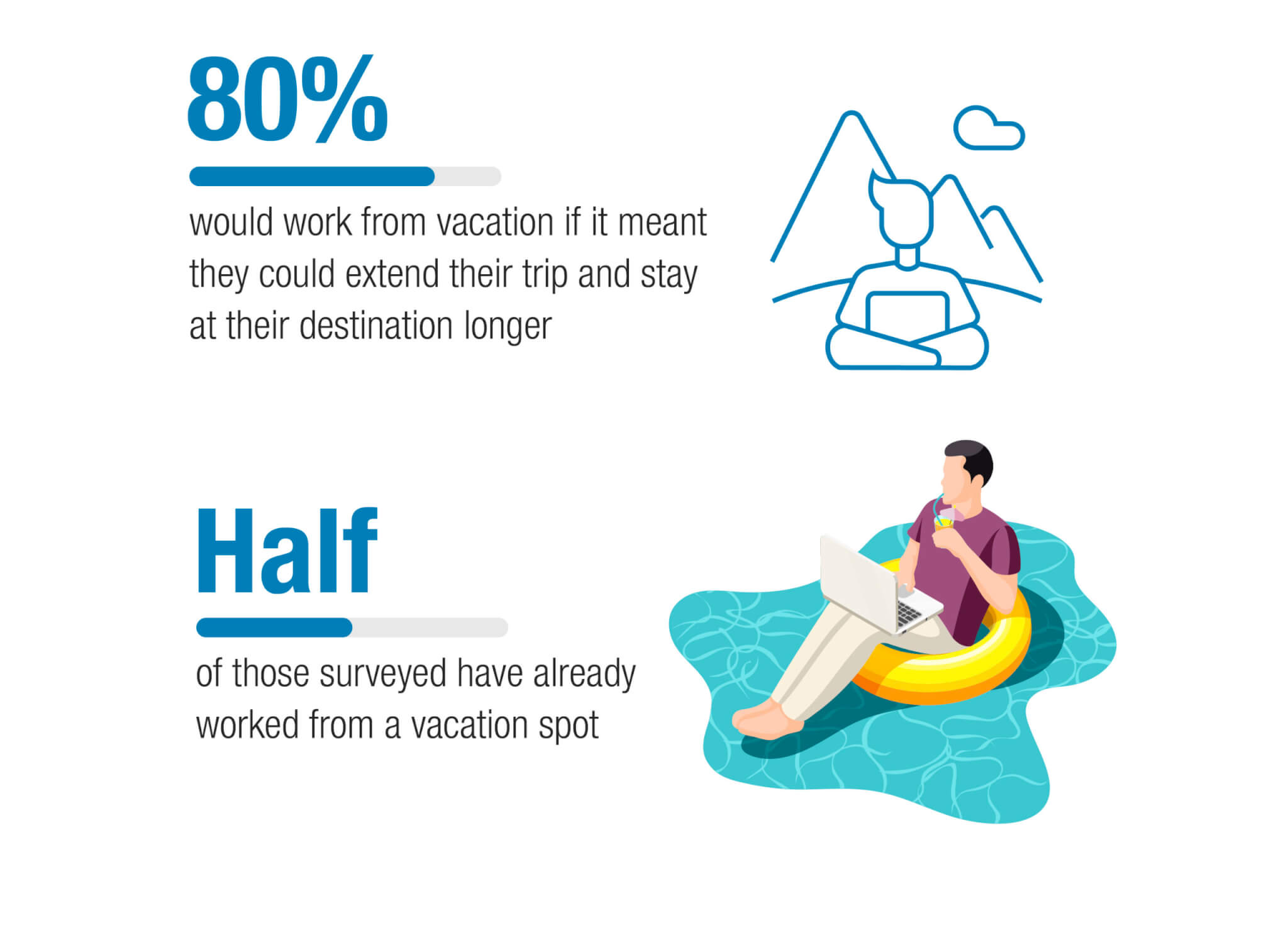NEW YORK — Forget working from home – a recent survey of 2,000 remote and remote-flexible workers finds hat 80 percent would consider working remotely from a vacation destination as a way to extend the length of their trip.
Nearly half the poll says they’re just as likely to work on vacation (48%) as they are to work from their local coffee shop (47%). When asked to choose between a longer trip that involved some remote work and a shorter trip that required no work, twice as many respondents opted for the former (46% vs. 26%).
Conducted by OnePoll on behalf of Marriott Vacations Worldwide, the survey also indicates the average remote worker takes four overnight trips a year, and 83 percent have taken at least one such trip in 2022. At the same time, the average remote worker only uses nine vacation days during that same time period, with one in five (22%) taking five days or fewer and nine in 10 (90%) taking fewer than three weeks.
This aligns with similar findings from the U.S. Bureau of Labor and Statistics, which found that most private industry workers (65%) only receive between five and 14 paid days off after one year of service.
‘Workcations’ may be the new fad for 2023
Of those surveyed, only 40 percent claimed that their employer offers unlimited vacation time, and 39 percent are not compensated for the paid time off they don’t use. With that in mind, it’s not surprising that 79 percent of respondents report being more interested in “workcations” now than they were two years ago, and are planning to take anywhere from one to five vacations in 2023.
“The rise of remote work has changed how people think about vacation time and leisure travel,” says Lori Gustafson, EVP, Chief Brand and Digital Officer at Marriott Vacations Worldwide, in a statement. “The flexibility of no longer being confined to an office has opened up a new opportunity for Americans to give in to their wanderlust and take a ‘workcation.’”

Seven in 10 remote workers (73%) take more vacation days a year now than they did before working remotely, and more than two in three (69%) believe the flexibility of remote work has improved their overall well-being and happiness. Ninety-six percent frequently do remote work from somewhere other than their home, including 65 percent who do so frequently.
Not surprisingly, survey-takers cited hotel rooms (25%) and vacation rentals (23%) as the top places they get work done while on vacation – although one in six would even be down to feel productive while sitting poolside (18%). Location aside, space (36%), quiet (38%), and internet access (42%) are the top three amenities workers look for when selecting accommodations for a hybrid work-vacation.
“Travel is not solely about the location, but about experiences. Those who work remotely from their destination not only have the space to separate the workday from the vacation, but can also enjoy a range of experiences and adventures when the workday comes to an end,” Gustafson adds.
Survey methodology:
This random double-opt-in survey of 2,000 workers with the flexibility to work from home was commissioned by Marriott Vacations Worldwide between October 24 and October 31, 2022. It was conducted by market research company OnePoll, whose team members are members of the Market Research Society and have corporate membership to the American Association for Public Opinion Research (AAPOR) and the European Society for Opinion and Marketing Research (ESOMAR).
